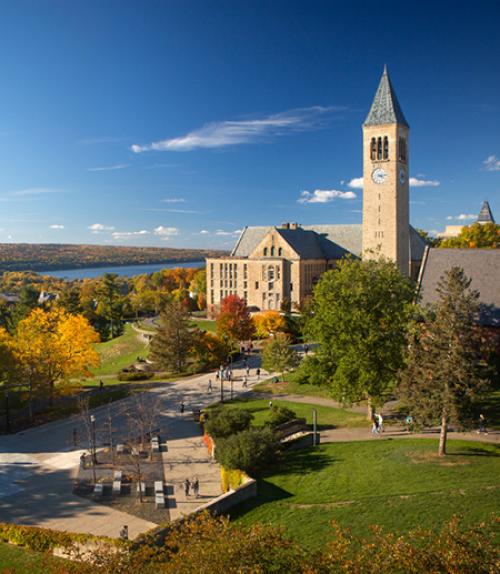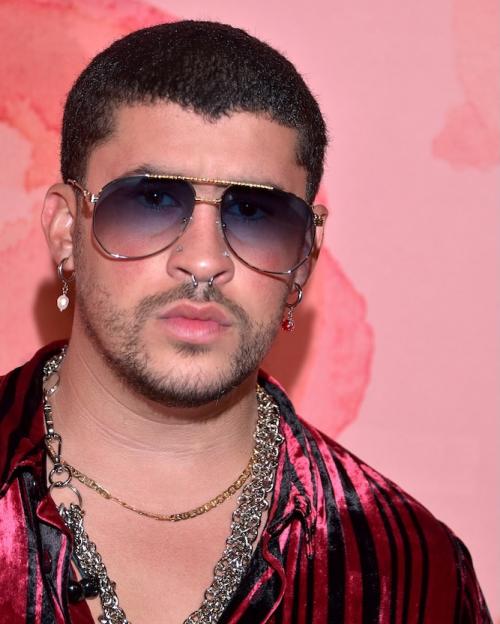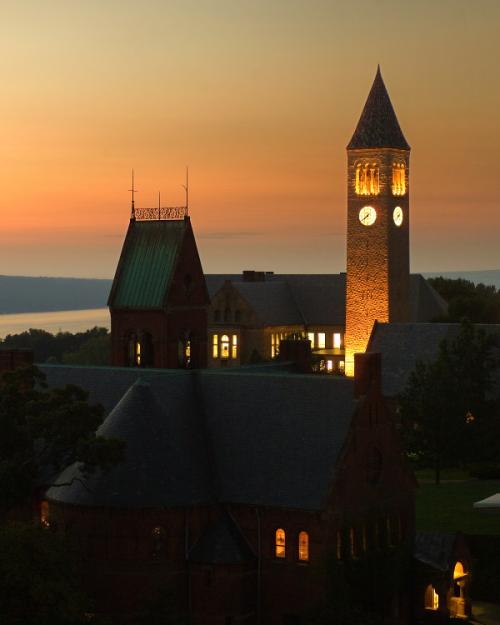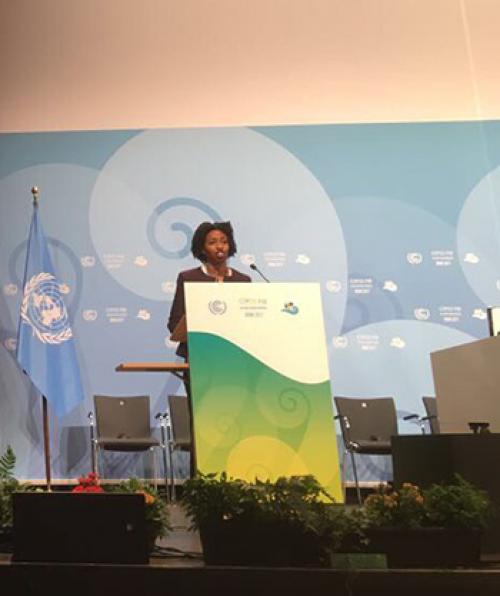On the world stage, Etinosa Obanor ’18 minced no words. Representing global youth constituencies at the high-level segment at the Conference of the Parties (COP23) in Bonn, Germany, Nov. 6-17, the student delivered a strong statement to the convention delegates as they negotiated and wrestled with climate change.
“In the past, you’ve never stopped promising action,” Obanor said. “But there is no need to keep talking endlessly in closed rooms, if you don’t face up to reality and act accordingly. Distinguished delegates, it is your choice if you want future generations to remember you as heroes of the century.”
For the past 12 years, youth and college students have participated in the United Nations Climate Change Conference at the COP negotiations. Obanor interned last summer at the Business Environment Council, an environmental nongovernmental organization based in Hong Kong, where she participated in high-stakes meetings on energy efficiency and finance with United Nations and international banking officials.
In Bonn, she reiterated to the delegates: “You must commit to pre-2020 action. At this very moment, people are suffering and dying from the impacts of climate change. The only option we have is to act now. The climate crisis is a new frontier for human rights. Take your responsibility seriously.”
In a call to end fossil fuel infrastructure expansion, Obanor said: “People around the world are demanding a just transition away from a fossil fuel-based economy. We urge the parties to make their future investments in clean sectors. Any new development, jobs and investment done in the fossil fuel industry will be wasted anyway – when we start taking the Paris Agreement seriously.”
Among the events that Mitchell Lee ’19 attended was a youth empowerment program, where he spoke to the Chinese and Mexican delegations. “My conversations were a great way to gain an international perspective on climate change. It was sobering and fascinating,” Lee said.
Jake Pero ’18 described the COP23 “wild ride” as exhilarating but sleep depriving.
By happenstance, Pero attended a climate smart solutions panel where he listened to Jared Snyder ‘81, deputy commissioner of air resources, climate change and energy for New York’s Department of Environmental Conservation. Pero interned with the Cornell Institute for Climate Smart Solutions (CICCS) over the summer, where he worked to build local awareness of DEC’s Climate Smart Communities program that incentivizes cities and towns to reduce their greenhouse gas emissions and build resiliency.
“After the panel, I told Mr. Snyder that I was working on a climate change program with CICCS and shared that I was a Cornell undergraduate, to which he replied, ‘I was once one of those too,’” Pero said.
Cornell faculty and staff attending the COP23 conference were Glen Dowell, associate professor, Samuel Curtis Johnson Graduate School of Management; Robert Howarth, the David R. Atkinson Professor of Ecology and Environmental Biology; Ellen Leventry, marketing and communications director, Atkinson Center for a Sustainable Future; Natalie Mahowald, the Irving Porter Church Professor of Engineering in Earth and Atmospheric Sciences; Erika Styger, associate director of International Programs in the College of Agriculture and Life Sciences; and Fengqi You, the Roxanne E. and Michael J. Zak Professor and David Croll Sesquicentennial Faculty Fellow in Chemical and Biomolecular Engineering.
Support was provided by the Atkinson Center for a Sustainable Future and CICSS, while the Office of the Vice Provost for International Affairs, and an Engaged Cornell grant helped cover the students’ travel funding.
This article was originally published in the Cornell Chronicle.




